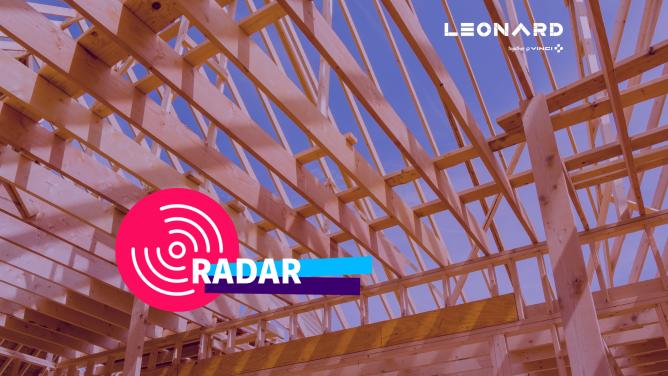American startup Cottage raises $15 million to make building annexes easier
The concept behind Californian startup Cottage is straightforward: to offer homeowners a simple solution for building a garden annex – or an accessory dwelling unit (ADU), as they’re called in America. Cottage does not design or install these dwellings themselves, nor is it prefab homebuilder. Rather, it is a marketplace that connects homeowners with builders, and provides tools that simplify the design process, make annex customization easier, and follow authorisation procedures.
Thanks to their idea, Cottage has recently raised $15 million in a Series A funding round led by prop-tech specialist venture capital firm Fifth Wall. 1Sharpe Ventures, DivcoWest and existing investors Susa Ventures and Base10 Partners also took part in the financing, which brings the company’s total raised to just over $20 million.
The startup intends to take advantage of legislative changes underway across the U.S. designed to ease the housing shortage, making it easier to build an annex on a property. Cottage has already established its name in the San Francisco and Los Angeles areas, where it has helped hundreds of projects come to life since its creation in 2019. The startup intends to use these new funds to expand its activity in San Diego, then in five or six other markets in 2023. The company also plans to increase its workforce from 30 to 50 or 60 people by the end of the year.
As stated in TechCrunch, Cottage is far from being the only American startup in on this action: in July 2021, Abodu raised $20 million thanks to its “one-stop shop” solution for building prefab annexes, meanwhile Mighty Buildings raised $22 million with its 3D-printing solution for building granny flats. Then there’s Villa and its turnkey “backyard homes”, which raised $15 million in August 2021. And following on from their innovation award at SXSW festival, Kiro Action offers different types of prefab structures for different needs, from office spaces to yoga studios, as well as crisis response housing.
Norwegian Modulize raises €1.9 million in seed funding for its prefab construction software solution
Prefabricated construction is also arousing interest in Europe… In Norway, Modulize has just raised €1.9 million euros in a seed round. Those participating in the round include Danish early-stage venture capital firm Kompas, British proptech venture capital investors Pi Labs, Norwegian real estate developer Møller Eiendom, Norwegian venture capital firm Investinor and early-stage venture capital firm Antler.
Founded in Oslo in 2020, Modulize’s aim is to make the construction industry more sustainable, by empowering offsite manufacturers and their customers through automated building analysis, calculation and prefab design. Their design optimization approach helps limit waste, reduce CO2 emissions and avoid delays on construction sites. Its solution offers builders a single platform for managing and optimizing the design, planning, procurement and delivery of offsite constructions.
The company will use the new funds to develop its product and expand into new European markets.
The Aix-based startup Lign.o looking to decarbonise construction with pre-fab components using wood and bio-based insulation
Based in the Pays d’Aix area, the startup Lign.O (“wood” in Latin) has developed a 2D modular construction system for buildings, which uses bio-based wooden frames prefabricated in a factory before being assembled on site. Lign.O also uses a digital engineering system which transforms drawings into on-site fabrication and assembly instructions.
By using wood, Lign.o helps reduce a building’s carbon footprint. On top of this, their eco-design and local sourcing credentials help further reduce the impact. Lign.O’s system uses structural components made of wood from local forests and sustainable, bio-based materials and insulation.
The company doesn’t only specialise in prefab wooden building components: its wall, floor and partition elements can be integrated into all types of constructions, including renovation projects. From small collective housing units to tertiary buildings and facade renovation, these prefab elements have tons of potential applications.
There’s more:
Israeli startup Ception launches a heavy equipment real-time monitoring tool — NoCamels and IsraelValley
Waste Marketplace raises €2 million — Construction Cayola
Nantes-based startup Sharemat creates Kiloutou equipment avatars — Construction Cayola
Renewable energy specialists TagEnergy raises €450 million — Le Figaro
Montpellier-based startup Kloovis launches a platform for wholesale clearance deals — Le Moniteur
Tandem PV raises $6 million to build new generation solar panels — Renewables Now
Starfleet Innotech and startup Luyten looking to build 500 3D-printed homes in the Philippines — Globe Newswire


